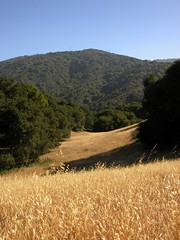 Wikipedia is great. Even now, it’s still kind of amazing that such a huge body of knowledge has been organized ad-hoc by volunteers, most of whom have never met in person. Most social software systems would die for this level of collaboration.
Wikipedia is great. Even now, it’s still kind of amazing that such a huge body of knowledge has been organized ad-hoc by volunteers, most of whom have never met in person. Most social software systems would die for this level of collaboration.
That said, has anyone else gone to a random Wikipedia article from, say, search results and ended up a little depressed? It seems like every other article I find lately has a big warning label at the top – this article contains too much trivia, this article has too many fictional references for an encyclopedic and academic approach of this topic, and worst one of all: this article has been marked for deletion.
I understand that it must be very difficult to wrangle all the millions of contributions into a consistently high-quality encyclopedia. Just dealing with all the spam and abuse must be an enormous undertaking, even when distributed among thousands of good samaritans. But one of the things that was great about Wikipedia was the breadth of coverage and the depth on some particulars, even if it was excessive to the point of comedy.
But a brief look at the list of articles marked for deletion the last few days illustrates my point.
1. Horse Ranch Mountain. You know there’s something wrong when a mountain doesn’t meet the notability requirement. Here’s the comment opening the deletion on the talk page:
In what way is Horse Ranch Mountain notable? I am quite familiar with the area, and I cannot think of any way in which it is notable. Please convince me otherwise.
I would think it’s notable because it is a mass of millions of tons of rock and earth sticking out of the ground. One a less sarcastic note, I’m sure I’m not the only one who’s looked at a map, spotted a feature I’ve never heard of, then looked it up online. Even if it’s not accessible it’s probably helpful to have a reference noting that it’s the highest point in Zion, measured at X meters tall, etc.
2. List of redundant expressions. I understand the argument that an encyclopedia is not a trivia game or a book of lists, but these sorts of pages used to be one of my favorite features of Wikipedia. Exhaustive lists of palindromes, English words of Polish origin, etc., give examples, context, and can help connect concepts in language. Also, the use or omission of redundancy is an important stylistic consideration when writing – it can be used for everything from emphasis to characterization.
3. Hindu literature. Delete the article on Hindu literature? Granted, the article needs work. But isn’t it worrying how the marked for deletion pages are filled with subject matter from outside the U.S. and maybe Europe?
I know the standard answer to complaints like these is that if you feel so strongly, you should participate in the debates and push for things not to be deleted. Judging by the talk pages I wonder if I would be drowned out by all the “I’m a history major and this is a programming term, never heard of it, not notable” comments. I’ll admit my contribution to Wikipedia is limited to random spelling and grammar corrections that were obvious enough that even I noticed them, so I could be wrong. I just feel like some of what made Wikipedia so addictive is slowly being drained away.
Agree? Think I’m wrong? Leave me a comment below. See, it’s kind of like a talk page, but even with consensus you can’t edit my article. Until the next WordPress exploit comes out.
I miss the very beginnings of wikipedia when you would get all the extraneous information, the lists of uses of phrases in popular media and things of that sort. all the unofficial information. Now it feels to academical.